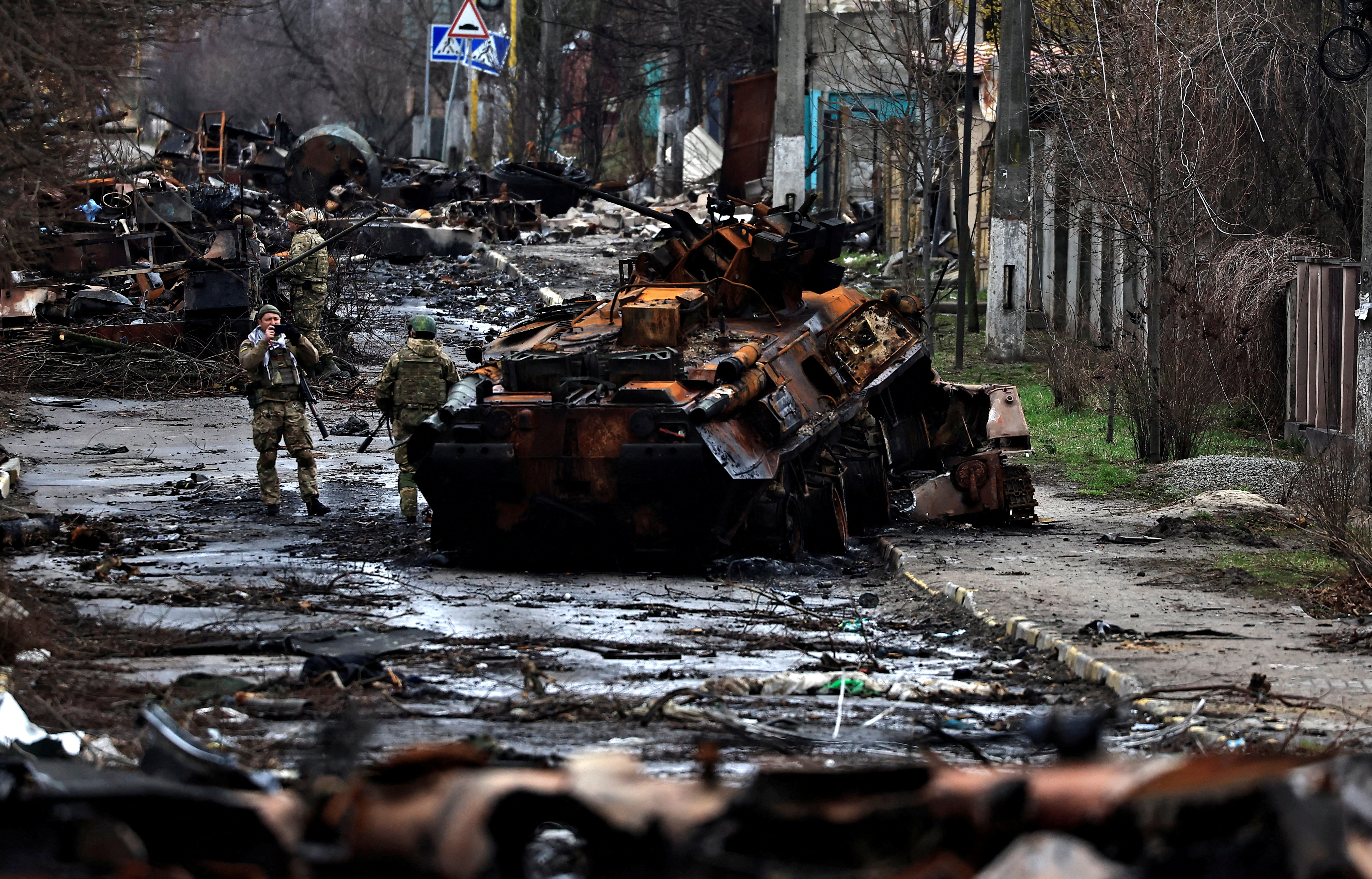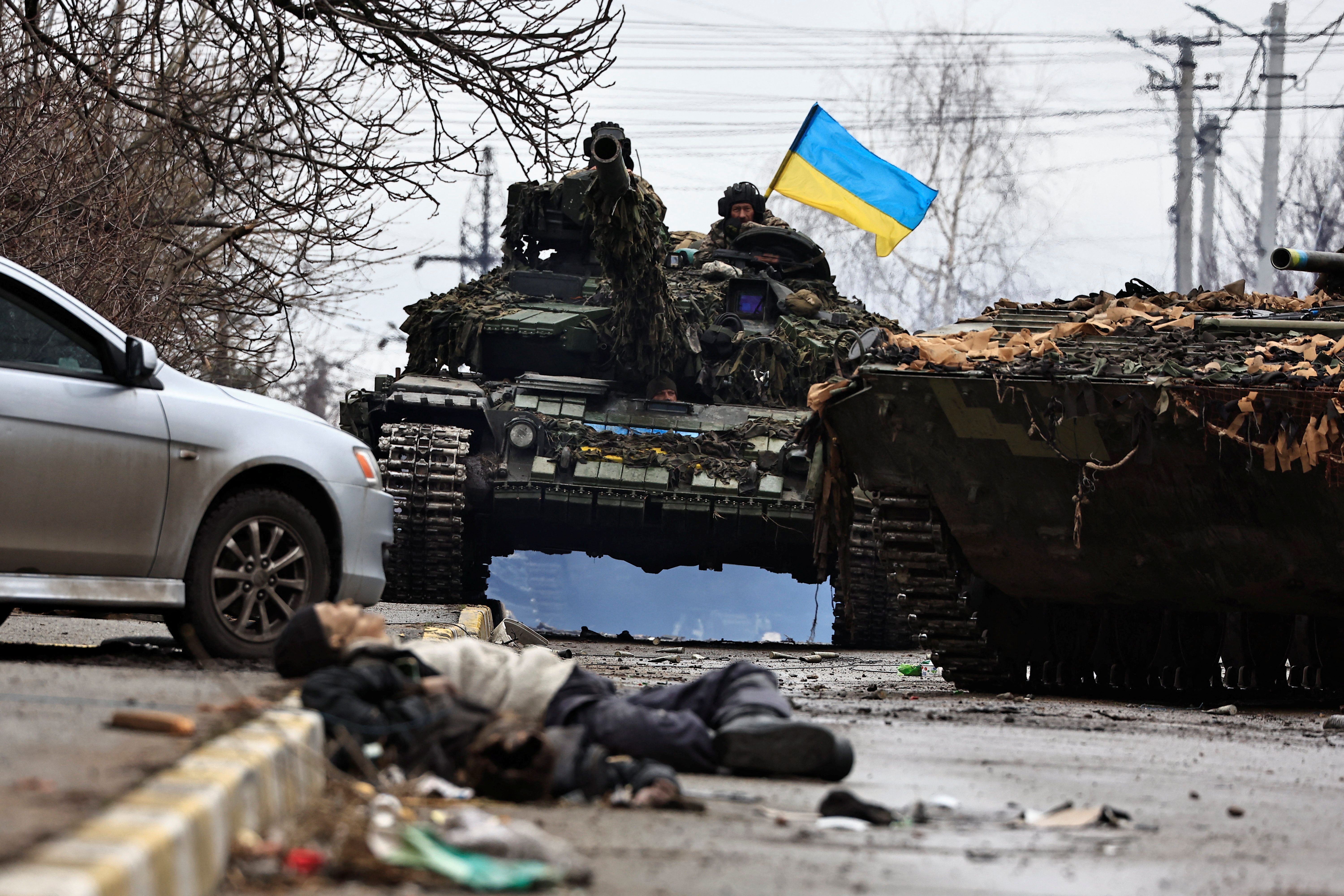
The head of the European Union, Charles Michel, promised on Sunday more sanctions against Moscow by condemning the “atrocities” carried out by Russian forces outside the Ukrainian capital, Kiev.
“Shocked by the disturbing images of the atrocities committed by the Russian army in the liberated region of Kiev #BuchaMassacre,” the head of the European Council, Michel, wrote on Twitter.
“The EU is helping Ukraine and NGOs gather the evidence necessary for their prosecution in international courts,” he said.
Nearly 300 people have been buried in a mass grave in Bucha, a city on the outskirts of the Ukrainian capital, Kiev, its mayor told AFP on Saturday after that the Ukrainian army regain control of the key city of Russia.
“In Bucha, we have already buried 280 people in mass graves,” Mayor Anatoly Fedoruk told AFP by telephone. According to him, the streets of the city, heavily destroyed, are full of corpses.
There were bodies with their hands tied behind their backs, the agency said. The bodies were scattered over several hundred meters, with no known cause of death so far.
Russian troops recently withdrew from several locations near Kiev, having failed in their attempt to surround the capital. The Ukrainian authorities proclaimed that Bucha had been “liberated”.

The fighting and bombing left an apocalyptic panorama, with huge holes in residential buildings and wrecked cars in various parts of the city.
Sixteen of the 20 bodies were on or next to a street sidewalk. Three were in the middle of the road and one in the courtyard of a house. A Ukrainian passport was located near the tied corpse.
All the dead wore civilian clothes: coats, coats, jeans or jogging pants and sneakers or boots. Two were lying in the vicinity of bicycles and another near an abandoned car. Some were face down and others were on their backs.
The faces of the deceased had a waxy appearance, which could indicate that they had been in the place for several days.

On Saturday, Pope Francis condemned the Russian invasion of Ukraine in Malta, where he plans to go at the invitation of Ukrainian President Volodymir Zelensky, and called for a “shared” response in the face of the growing migration emergency.
In a speech at the presidential palace in Valletta, at the beginning of a two-day visit to this Mediterranean island, the Argentine supreme pontiff lamented the “glacial wind of war” coming from “Eastern Europe”.
“Some powerful, sadly locked in the anachronistic claims of nationalist interests, provokes and fosters conflicts,” he added in an unequivocal allusion to Russian President Vladimir Putin, albeit without naming him.
Francis also denounced “the seductions of autocracy” and “new imperialisms”, which bring the risk of “extended cold war that can stifle the lives of peoples and entire generations.”
Asked by the press about a possible trip to Ukraine, the holy father replied: “Yes, it's on the table.”
The 85-year-old Argentine pontiff was invited by Zelensky to play the role of mediator in negotiations between Ukraine and Russia and visit his country invaded by Russian troops since the end of February.
He was also invited by the mayor of Kiev, Vitali Klitschko, to “show his compassion” with the Ukrainian people
Faced with the conflict in Ukraine, which has led more than 4.1 million of its inhabitants to flee the country, the pope called for “broad and shared responses”.
“Only some countries cannot bear the whole problem, while others remain indifferent,” he told Maltese President George Vella and the diplomatic corps.
In addition to the reference to Ukraine, it was a criticism of the migration policy of the European Union (EU), including Malta, accused of closing its ports to NGOs that help migrants trying to reach Europe by crossing the Mediterranean.
KEEP READING:
Últimas Noticias
Debanhi Escobar: they secured the motel where she was found lifeless in a cistern
Members of the Specialized Prosecutor's Office in Nuevo León secured the Nueva Castilla Motel as part of the investigations into the case

The oldest person in the world died at the age of 119
Kane Tanaka lived in Japan. She was born six months earlier than George Orwell, the same year that the Wright brothers first flew, and Marie Curie became the first woman to win a Nobel Prize

Macabre find in CDMX: they left a body bagged and tied in a taxi
The body was left in the back seats of the car. It was covered with black bags and tied with industrial tape
The eagles of America will face Manchester City in a duel of legends. Here are the details
The top Mexican football champion will play a match with Pep Guardiola's squad in the Lone Star Cup

Why is it good to bring dogs out to know the world when they are puppies
A so-called protection against the spread of diseases threatens the integral development of dogs




